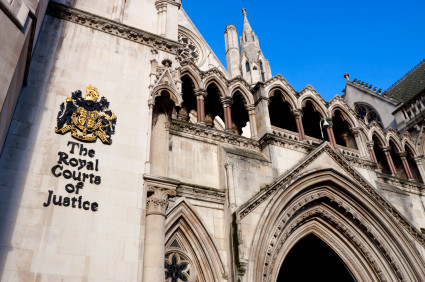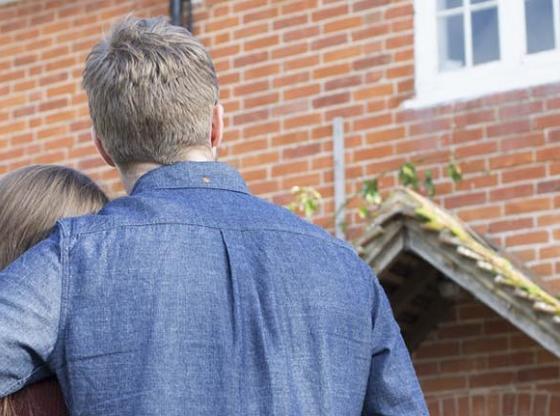Judges Discretion to Grant Possession Orders
In the case of City West Housing Trust v Massey, Manchester and District Housing Association v Roberts [2016] EWCA Civ. 704 the England & Wales Court of Appeal considered joined cases where social landlords attempted to recover possession of properties which had been used for the cultivation of cannabis. The Court of Appeal had to consider whether it was appropriate to grant a suspended possession order or an outright possession order in these cases.
History of the Cases
In each case, the property had been used by someone known to the tenant to cultivate cannabis. One tenant denied any knowledge of the offence, while the other claimed he was forced to make his property available by a criminal gang. Evidence submitted by each tenant was disbelieved in whole, or in part, but an SPO was granted in each case based on the hope that the tenant would refrain from similar behaviour in the future. The landlords appealed these decisions.
In the Massey case, City West Housing Trust appealed the SPO, but the High Court refused the appeal, with the judge concluding that the making of an SPO was a non-reviewable exercise of discretion and that, although it was charitable towards the tenant, it was a decision the judge was entitled to come to.
Manchester & District Housing Association successfully appealed the granting of an SPO, with the judge granting an outright possession order.
The Court ruled that a judge making an order could only rely on the tenant’s behaviour and not on the fact that the landlord would be carrying out inspections, stating “reasons which depend upon imposing a positive obligation upon a landlord going well beyond those ordinarily present are not an appropriate factor upon which to found a sound basis for hope the tenant would stop using the property for unlawful purposes. The tenant made a further appeal against the outright possession order and the cases were consolidated in the England & Wales Court of Appeal.
The outcome was that the Court of Appeal dismissed the appeal in the Massey case and in the Manchester & District Housing case, the court overturned the possession order and reinstated the suspended possession.
Matters considered by the court
The Court of Appeal in considering the appeals looked at two questions, firstly, whether the orders of the County Court were wrong and secondly the question of any guidance for the future.
On the first question, in both cases, the Court of Appeal held that the District Judge had been persuaded that the tenants would comply with the terms of their tenancy if conditions, tailored to their circumstances, were imposed. The assessment of a tenant in these circumstances is in all cases a question for the trial judge. There were a number of factors common to each case, which had influenced the judge’s assessment of the tenants’ assurances for the future, namely:
- the tenant was not found to be primarily responsible for the cannabis cultivation.
- there was no evidence of previous offences or breaches by the tenant of the terms of the tenancy agreement.
- each tenant expressed a willingness to comply with the terms of the tenancy in the future.
In answering the second question, the Court issued limited guidance for the future but stated that: “Anyone applying this guidance must bear in mind that the grant of an SPO is case-sensitive. The proper resolution of every case must turn on its own facts, as well as the law, and so guidance must be applied appropriately to the circumstances of a particular case.”
What factors should influence the judge’s decision?
The landlords had argued that the judge should factor in the tenant’s dishonesty when exercising his or her discretion and had suggested that the tenant should have to satisfy a checklist showing:
- co-operation with housing authorities and prosecuting authorities
- honesty and full disclosure of previous inappropriate behaviour
- genuine remorse
- early acceptance of culpability
- the duration of any illegal activity.
The Court disagreed that a checklist should have to be fulfilled as each case must turn on its own facts. The Court did, however, issue guidance on the factors which should contribute to the suspension of an order which were:
- There must be cogent evidence that there is a sound basis for hope that the previous conduct will cease. To be cogent the evidence must be more than simply credible, it must be persuasive
- The focus must be on the future, rather than the past
- There is no principle that future behaviour must stem solely from the tenant.
- In framing conditions, the judge should have regard to all the circumstances, including the resources of the social landlord
- Dishonest evidence does not prevent the court from finding cogent grounds
- The decision to grant or not to grant an SPO involves two stages, (1) findings of fact, and (2) a decision on whether or not to exercise discretion
- It is not appropriate to provide a check-list of matters which a judge should take into account in deciding whether or not to suspend a possession order
- A court making a suspended possession order should give adequate reasons as to why it has decided to exercise its discretion
The court also highlighted the importance for a judge to apply reasonableness. The decision of whether to make an SPO not only involves a multi-factorial assessment. It also calls for a broad, commonsense approach and the court referred to the statement of Lord Greene in Cummings v Dawson [1942] 2 All ER 653 (CA) in relation to reasonableness:
“In considering reasonableness… it is, in my opinion, perfectly clear that the duty of the judge is to take into account all relevant circumstances as they exist at the date of the hearing. That he must do in what I venture to call a broad, common-sense way as a man of the world, and come to his conclusion giving such weight as he thinks right to the various factors in the situation. Some factors may have little or no weight, others may be decisive…”
Where does this leave landlords?
This judgement is a reminder of the wide discretion judges have when a landlord relies on a discretionary ground to evict a tenant. Grounds of damage to the let premises, anti-social behaviour and illegal activity are all discretionary grounds for possession. Whilst these cases involved social landlords, it is highly likely to also apply to private landlords.
An important point for any landlord to focus on when bringing a claim for possession founded upon discretionary grounds is the risk of the tenants’ conduct continuing if a possession order is not made. This is a factor that a court is highly likely to attach much weight to.
The more probable it is that the tenant’s unlawful conduct will continue, the more likely a court is to grant a possession order (Accent Peerless Ltd v Kingsdon [2007] EWCA Civ1314).
In relation to rent arrears, we have seen in the case of Dellenty v Pellow 2 [1951] All ER, CA; where there is a long history of the tenant failing to pay rent in full and on time, it is likely to be reasonable for a possession order to be made.
The court’s discretion when it comes to discretionary grounds of possession is a wide one and landlords should never assume that the making of some form of possession order is a foregone conclusion.
Author: Sasha Charles
Source: Landlord Advice UK
Date: 27th of July 2020
Other blogs:











